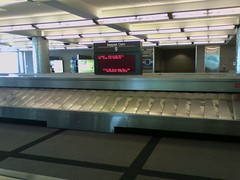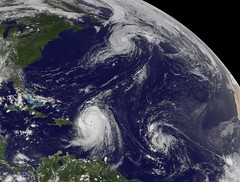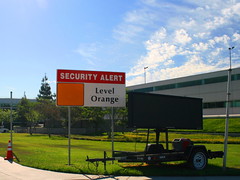 Since air travel has become more affordable, many vacationers choose to fly to their destinations instead of traveling by road or sea. Traveling by air is the best way to get to a vacation destination, because it is much faster than other forms of transportation. Nevertheless, air passengers have to be prepared for certain undesirable incidents that are known to happen during air travel, and one of them is the loss of luggage.
Since air travel has become more affordable, many vacationers choose to fly to their destinations instead of traveling by road or sea. Traveling by air is the best way to get to a vacation destination, because it is much faster than other forms of transportation. Nevertheless, air passengers have to be prepared for certain undesirable incidents that are known to happen during air travel, and one of them is the loss of luggage.
Most of the time, checked baggage pieces will show up in the baggage claim areas of their intended destinations, and their owners will pick them up. Due to errors made by baggage handlers or airlines, a small percentage of bags will be delayed or lost. Those who are taking indirect flights have a higher risk of losing their luggage, because the process of transferring their bags is more complicated. Checked bags on indirect flights will be transferred to at least one other airport before they are delivered to their final destinations, and there is greater opportunity for errors to occur. Nonetheless, this does not mean that passengers on direct flights will not lose their luggage. Bags may be temporarily misplaced or sent to a wrong airport, and they may be reunited with their owners after some time, or lost permanently.
It can be distressing for travelers to lose their baggage. Other than causing great inconvenience, loss of baggage can also result in substantial financial loss. While some bags only contain clothes, toiletries, and other less expensive items, others may contain jewelry, cash, laptops, electronic gadgets, antiques, or costly sports equipment. Air passengers who lose bags with expensive items may have to suffer financial loss that amounts to thousands of dollars, and they may have to save money for long periods before they can replace all their lost belongings.
In the event that your checked baggage is lost permanently, your airlines have the obligation to compensate you for your losses. One thing you have to know is that compensation for lost luggage from airlines is often insubstantial, and you will probably get an amount that is far lower than the true value of your lost belongings. If you want to get complete financial protection for your luggage, it is best that you purchase a travel insurance policy. A travel insurance plan that features good coverage for loss of baggage and other damages will give you absolute peace of mind throughout your vacation.







